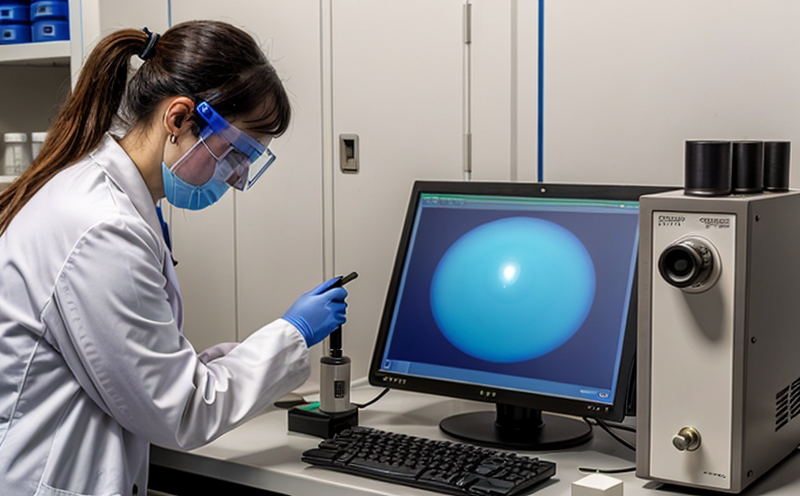EN 14084 Spectroscopic Analysis of Alcohol Content
The European Standard EN 14084 specifies a method for determining alcohol content in volatile organic compounds (VOCs) using near-infrared spectroscopy. This service is particularly relevant for industries dealing with ethanol and methanol, such as pharmaceuticals, food & beverage manufacturing, and fuel production.
This method provides accurate quantification of alcohol content by measuring the absorbance of light at specific wavelengths that are characteristic of alcohol molecules. Near-infrared (NIR) spectroscopy is well-suited for this application because it can penetrate through thin layers of liquid or vapor without requiring extensive sample preparation.
The procedure involves calibrating a spectrometer against known samples to establish the relationship between the absorbance at certain wavelengths and the concentration of alcohol. Once calibrated, the instrument can measure unknown samples by comparing their spectra with those in the calibration set.
One of the key advantages of this method is its speed; measurements are typically completed within minutes, allowing for rapid quality control checks or process monitoring. Additionally, it offers non-destructive analysis, meaning that no sample is consumed during testing, which preserves valuable resources.
The precision and accuracy of EN 14084 spectroscopic analysis have been validated through extensive validation studies conducted by laboratories across Europe. These studies ensure that the method meets the stringent requirements set forth in ISO standards for analytical methods.
For industries where compliance with regulatory standards is critical, such as pharmaceuticals and food & beverage, this service ensures that products meet the required specifications for alcohol content. In fuel production, it helps maintain consistent quality across batches by providing real-time feedback on alcohol concentration during distillation processes.
The reliability of EN 14084 has been demonstrated in various applications, including but not limited to:
- Quality assurance in the pharmaceutical industry
- Process control in ethanol production facilities
- Compliance monitoring for fuel blends containing alcohol additives
- Research and development efforts aimed at improving alcohol extraction techniques
The use of this standard ensures that all parties involved have confidence in the accuracy of the results, fostering trust between suppliers and customers. This consistency is especially important when dealing with international markets where uniformity across borders can significantly impact trade agreements.
Our laboratory employs state-of-the-art NIR spectrometers capable of performing these analyses with high precision. We also offer comprehensive training programs for personnel responsible for conducting these tests, ensuring that everyone involved understands both the theoretical basis and practical implementation of EN 14084.





